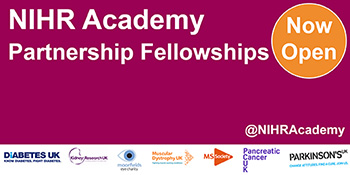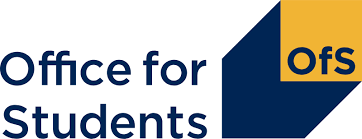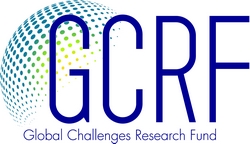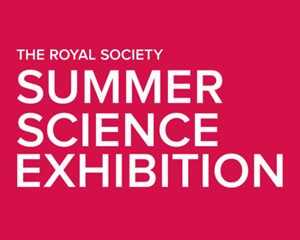 Closing date (Notification of Intent): 16:00 on Wednesday 7 March 2018
Closing date (Notification of Intent): 16:00 on Wednesday 7 March 2018
Closing date (Proposals): 16:00 on Wednesday 16 May 2018
NERC invites proposals to host and deliver its second phase of investment in Doctoral Training Partnerships (DTPs).
DTPs provide excellent postgraduate research opportunities as well as varied professional and technical skills and personal development training. Training delivered through DTPs can be drawn from any part of the NERC science remit and research topics are chosen by students and supervisors. This training plays a key part in maintaining the breadth and diversity of our research base and in ensuring that as a community we are responsive to new ideas.
DTP students are trained in cohorts, and training is delivered in collaboration with both academic and end-user partners from a wide range of backgrounds to ensure students are equipped with the skills and experiences required across NERC’s diverse community, for the benefit of science, policy, the wider labour market, and the economy.
NERC expects to invest in between 10 and 20 DTPs through this call. Each DTP award will provide funding for five years of new student intakes (eight years of funding in total, from the start of the academic year 2019-20). Each DTP will be allocated between 12 and 24 studentships per year.
Each DTP will offer training across a range of scientific topics within the NERC remit and may include training at the interface between environmental sciences and other disciplines, where many major research challenges exist. It is anticipated that, collectively, the DTPs awarded through this call will cover the breadth of NERC’s remit. However, there is no expectation that a single DTP will cover the whole of NERC’s remit.
This is an open competitive call for new DTP awards and no existing NERC DTP awards will be automatically renewed. Existing NERC DTPs must follow the application process outlined here and submit both a notification of intent and a proposal through this call.
A town hall meeting will be held on 30 January 2018 in central London to give potential applicants the opportunity to discuss the call with NERC. Registration for this meeting has already closed and the final attendee list has been confirmed. A summary of the meeting will be published on the NERC website.
This call has been informed by the outcomes of the DTP mid-term evaluation 2016-17.
How to apply
This call includes a notification of intent stage.
Notification of intent
Notification of intent must be submitted using the online registration form. The closing date for notifications of intent is 16:00 on 7 March 2018.
Full proposals
Full proposals will only be accepted from those that have submitted a notification of intent via the online form and NERC must be informed of any changes to hosting partners following the submission of a notification of intent.
Proposals must use the form provided below and must be submitted via the research councils’ Je-S system by 16:00 on 16 May 2018.
Full proposal form (Word, 57KB)
For full details, please see the Announcement of Opportunity document below.
Announcement of Opportunity (PDF, 760KB)
Contact
NERC Research Careers
researchcareers@nerc.ac.uk
If you intend to submit to this call, please contact your RKEO Funding Development Officer in the first instance.



 The ESRC has announced funding opportunity for a new phase of its National Centre for Research Methods (NCRM), which is an exciting opportunity for a team to develop and deliver a strategy for methods training and capacity-building in the social sciences. The team will be responsible for :
The ESRC has announced funding opportunity for a new phase of its National Centre for Research Methods (NCRM), which is an exciting opportunity for a team to develop and deliver a strategy for methods training and capacity-building in the social sciences. The team will be responsible for :
 The Arts & Humanities Research Council and BBC Radio 3 are
The Arts & Humanities Research Council and BBC Radio 3 are  The UKRI Future Leaders Fellowship scheme (FLF) aims to develop, retain, attract and sustain research and innovation talent in the UK. Providing up to seven years of funding, for at least 550 early-career researchers and innovators, the scheme will tackle difficult and novel challenges.
The UKRI Future Leaders Fellowship scheme (FLF) aims to develop, retain, attract and sustain research and innovation talent in the UK. Providing up to seven years of funding, for at least 550 early-career researchers and innovators, the scheme will tackle difficult and novel challenges. ESRC will shortly be inviting applications of between £1 million and £2.5 million (at 100% fEC) to take forward an exciting research agenda in the area of
ESRC will shortly be inviting applications of between £1 million and £2.5 million (at 100% fEC) to take forward an exciting research agenda in the area of  Connected Nation Pioneers is an exciting partnership between the
Connected Nation Pioneers is an exciting partnership between the  Closing Dates
Closing Dates
 Closing date (Notification of Intent): 16:00 on Wednesday 7 March 2018
Closing date (Notification of Intent): 16:00 on Wednesday 7 March 2018 ESRC have announce the call for outline proposals for their Centres Competition 2018.
ESRC have announce the call for outline proposals for their Centres Competition 2018. The Arts and Humanities Research Council (AHRC) have launched their annual competition, in conjunction with BBC Radio 3, called ‘
The Arts and Humanities Research Council (AHRC) have launched their annual competition, in conjunction with BBC Radio 3, called ‘ This competition aims to develop a new generation of academics who can bring the best of university research and scholarly ideas to a broad audience through working with the media. It’s a chance for early career researchers to cultivate the skills to communicate their research findings to those outside the academic community.
This competition aims to develop a new generation of academics who can bring the best of university research and scholarly ideas to a broad audience through working with the media. It’s a chance for early career researchers to cultivate the skills to communicate their research findings to those outside the academic community. RCUK (UKRI) 2017 Industrial Fellowships – NERC closing date 19th September 2017.
RCUK (UKRI) 2017 Industrial Fellowships – NERC closing date 19th September 2017. The Royal Society is looking for brilliant science and scientists to feature at the
The Royal Society is looking for brilliant science and scientists to feature at the 










 Expand Your Impact: Collaboration and Networking Workshops for Researchers
Expand Your Impact: Collaboration and Networking Workshops for Researchers Visiting Prof. Sujan Marahatta presenting at BU
Visiting Prof. Sujan Marahatta presenting at BU 3C Event: Research Culture, Community & Can you Guess Who? Thursday 26 March 1-2pm
3C Event: Research Culture, Community & Can you Guess Who? Thursday 26 March 1-2pm UKCGE Recognised Research Supervision Programme: Deadline Approaching
UKCGE Recognised Research Supervision Programme: Deadline Approaching ECR Funding Open Call: Research Culture & Community Grant – Apply now
ECR Funding Open Call: Research Culture & Community Grant – Apply now ECR Funding Open Call: Research Culture & Community Grant – Application Deadline Friday 12 December
ECR Funding Open Call: Research Culture & Community Grant – Application Deadline Friday 12 December MSCA Postdoctoral Fellowships 2025 Call
MSCA Postdoctoral Fellowships 2025 Call ERC Advanced Grant 2025 Webinar
ERC Advanced Grant 2025 Webinar Update on UKRO services
Update on UKRO services European research project exploring use of ‘virtual twins’ to better manage metabolic associated fatty liver disease
European research project exploring use of ‘virtual twins’ to better manage metabolic associated fatty liver disease